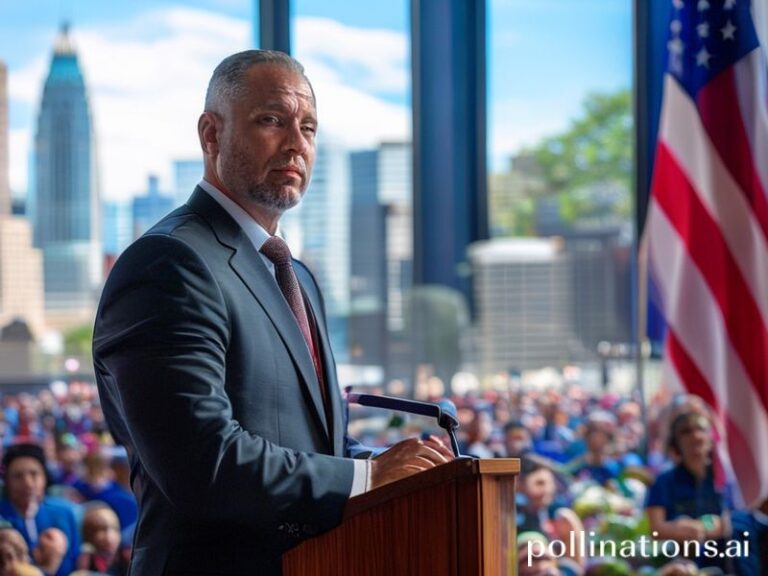lesotho vs south africa
Lesotho vs. South Africa: A David-and-Goliath Match Nobody Asked For
By Our Man in Maseru Who’s Learned to Never Order a Steak in Either Country
If you squint at the map long enough, Lesotho looks like South Africa’s kidney stone—small, painful, and lodged precisely where Pretoria can’t ignore it. This week, however, the two countries have moved from passive-aggressive neighborhood WhatsApp groups to full diplomatic fisticuffs, offering the rest of us a ringside seat at yet another reminder that geography is just another word for a bad marriage you can’t divorce.
The immediate casus belli is a South African proposal to slap tighter work-permit rules on Lesotho citizens, ostensibly to protect local jobs that, judging by the 34 % youth unemployment rate, locals have shown no interest in taking anyway. Lesotho’s government, which survives largely on remittances, customs revenue, and the faint hope that someone will someday buy its surplus wool, responded with the diplomatic equivalent of “touch my cousin and I’ll tell my big brother.” That big brother, alas, is the Southern African Development Community (SADC), a body whose peacemaking prowess rivals a UN Security Council yoga retreat.
Global Context, or Why Your Smartphone Battery Cares
To the wider world, Lesotho is mostly famous for exporting water to South Africa via the Lesotho Highlands Water Project, a 1980s engineering marvel that lets Gauteng province flush its toilets while Lesotho’s own taps run as predictably as a British train timetable. The scheme earns Maseru royalties—roughly 5 % of GDP—money that ultimately helps keep the lilangeni in the same currency union as the rand. In other words, South Africa can’t sneeze without Lesotho catching fiscal pneumonia, and Lesotho can’t pay the doctor without South African sneezes. It’s symbiosis, but the kind where one organism keeps threatening to eat the other.
Investors from Beijing to Boston, ever keen on risk models that assume borders are rational, are watching nervously. Any hint of a trade chokepoint on the N8 highway—Lesotho’s umbilical tarmac—could delay shipments of textiles bound for American discount racks. If that happens, the only thing standing between a Walmart shopper and full-price polyester is the moral arc of the universe, which, as we all know, bends toward cheaper T-shirts.
The Broader Significance: A Masterclass in Micro-Geopolitics
To the cynical eye, this spat is less about passports than about Pretoria’s ruling party trying to look tough on immigration ahead of an election where its own supporters have started referring to it as “the loyal opposition we keep voting for.” Meanwhile, Lesotho’s governing coalition—three parties held together by duct tape and a shared dislike of daylight-saving time—sees a foreign bully to blame for everything from potholes to the price of paraffin. Both sides get to posture, journalists get clickable headlines, and the rest of us get to pretend we’re witnessing history rather than the world’s slowest border-control queue.
Yet the episode offers a neat parable for our age. In a planet increasingly allergic to multilateralism, even the tiniest states discover that being landlocked is no barrier to leveraging water, labor, and sheer nuisance value. Lesotho’s 2.3 million citizens, armed with little more than mountains and a knack for marathon running, can still make a regional superpower wince. If that doesn’t warm the cockles of every underdog from East Timor to Estonia, you’ve probably outsourced your cockles to a call center in Mumbai.
Conclusion: A Forecast with Scattered Irony
Expect a choreographed “renegotiation” in a luxury hotel where the buffet costs more than Lesotho’s daily water royalties. South Africa will slightly loosen visa rules; Lesotho will promise to stem the tide of undocumented shepherds. Both delegations will toast with South African wine—Lesotho has none of its own—and issue a communiqué dense enough to stun an ox. And somewhere in the Karoo, a bored trucker will continue hauling Lesotho-made jeans, blissfully unaware that he is the real foreign policy. As ever, the world keeps turning, mostly on the hubris of people who mistake borders for endings rather than badly drawn punchlines.







